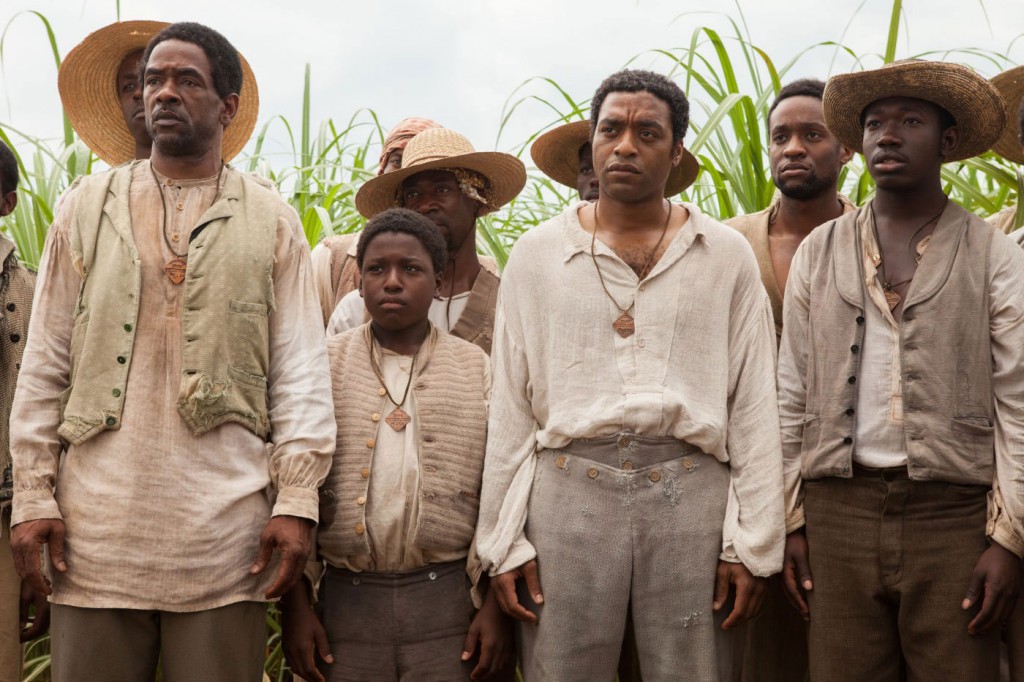
Black people have been disproportionately underrepresented in cinema, both on screen and behind the camera. Movies about black people are usually considered a sub-genre of their own, made to be seen by the community they represent. But a few movies have resisted that pigeonhole and instead entered the mainstream.
Last year in particular brought a renaissance movement for black cinema. It was the culmination of a trend where movies about black life in America are no longer a sub-genre, but part of the larger fabric of American cinema. The movies were recognized by critics and audiences alike as standing shoulder to shoulder with the other best movies of the year for reasons other than their subject matter. “42” gave us a long-awaited Jackie Robinson biopic, “Fruitvale Station” depicted a true-life example of disproportionate targeting of blacks by the police, “Lee Daniels’ The Butler” presented one African-American’s sweeping if unlikely influence on American history and “12 Years a Slave” is the most important film yet on the subject of slavery. The Academy of Motion Picture Arts and Sciences even elected its first black president, Cheryl Boone Isaacs.
Here are six landmark movies that helped make black cinema a mainstream phenomenon, starting from the first movie made by a black director to “12 Years a Slave.”
1. “The Homesteader” (1919)
Oscar Micheaux’s work has unfortunately been fading from the cultural conversation, but he remains one of the most ambitious artists of the century. His movie “The Homesteader” was the first movie directed by an African-American. Nowadays, directors are seen as a movie’s creative leader, but in the 1920s, a film director was understood as someone simply hired by a studio to put together a movie. Micheaux bucked that convention and was the rare artist who directed, produced and wrote his own films. He was also enormously prolific, having made 44 feature films in his lifetime.
2. “In the Heat of the Night” (1967)
Sidney Poitier’s big year was 1967, when he starred in three films — “To Sir, with Love,” “Guess Who’s Coming to Dinner” and “In the Heat of the Night” — and became the highest-grossing star in Hollywood. All of those movies sparked a national conversation on race, coinciding with the Supreme Court decision on Loving v. Virginia, which declared all laws prohibiting interracial marriage to be unconstitutional. “Heat” was the most important of those movies, beating out “Dinner” and other Hollywood landmarks (“Bonnie and Clyde” and “The Graduate”) for the best picture Oscar. Poitier stars as a homicide detective from Philadelphia who, after visiting his mother in small-town Mississippi, is falsely accused of murder by local police. After being cleared of accusation, he is asked to help with the murder case. The movie hasn’t aged too well — the small-town Mississippians are too simply sketched to appear as anything more than wrongheaded simpletons, but Poitier’s performance remains one of his best.
3. “The Man” (1972)
When the president dies and the vice president doesn’t want his job, the U.S. Constitution turns to Congress for the next president. James Earl Jones plays a congressman who, due to that unexpected turn of events, becomes the first black president as well as the first unelected one (this was two years before Gerald Ford took office). Rod Serling’s screenplay puts a black man in one of the most powerful positions in the world and explores the consequences.
4. “Do the Right Thing” (1989)
When it hit theaters, the debate over “Do the Right Thing” was as inflamed as the summer day depicted in the movie. Spike Lee’s masterpiece exposes a cross-section of a Brooklyn neighborhood and the racial tension within it. The tension mounts into a riot, leading several film reviewers to say that black viewers of the movie might do the same after watching it. Lee is also responsible for several other terrific movies on race. In particular, “Malcolm X” (1992) and his later documentaries present nuanced perspectives on how black figures are treated in American history.
5. “Boyz n the Hood” (1991)
It’s easy to understand gang violence as some kind of just consequence, something that happens to other, violent people who are probably guilty of some violent crime themselves. But John Singleton’s “Boyz n the Hood” was the first major motion picture to look at gang violence with a realist lens, showing how well-intentioned actions in a dangerous environment can lead to tragedy. Singleton also became the first black director to be nominated for the Academy Award for best director. Plus, the movie got a really good performance out of Ice Cube.
6. “12 Years a Slave” (2013)
Until “Django Unchained,” the greatest crime in American history was largely unrepresented in cinema. And “Django,” of course, put an entertaining spin on the narrative. “12 Years a Slave” takes on slavery with the seriousness the subject deserves. Director Steve McQueen’s unflinching film tells the true story of Solomon Northup, a free black man in New York who was kidnapped and sold into slavery in Louisiana for 12 years.


